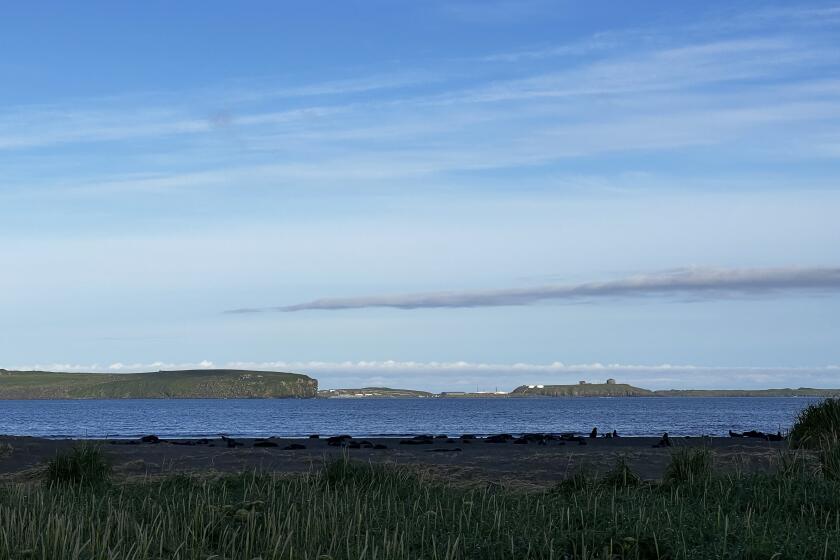Coup Leaders Left Noriega With Phone, Webster Says
CIA Director William H. Webster said Friday that last month’s abortive attempt to oust Panamanian strongman Gen. Manuel A. Noriega failed because its leaders, thinking that they could have “an old-fashioned coup where people don’t have to be hurt,” left Noriega alone in a bedroom where he telephoned his mistress and other supporters to rescue him.
“You could say . . . maybe that’s what went wrong,” he said. “They planned to do it themselves. They wanted a Panamanian solution. It was kind of an idealistic approach to their problems where people don’t have to get hurt, where you go in and take over the headquarters. They did not want anything to happen to Noriega. They wanted him to be able to retire in dignity.”
In an interview with journalists at the Washington Post on Friday, Webster said there had been no “intelligence failure that would have affected (President Bush) or denied him something that he needed to know” before the Oct. 3 coup attempt by dissident officers of the Panama Defense Forces.
The plotters gave U.S. officials 24 hours’ notice of their intentions, he said, although there initially was some doubt among U.S. policy-makers about whether the coup leader, Maj. Moises Giroldi, could be trusted. Giroldi, who was killed after Noriega’s rescue by loyalists, had been instrumental in foiling a 1988 attempt to depose the Panamanian strongman.
“Noriega’s very crafty, and (U.S. officials) thought they might be getting set up for some kind of embarrassment, and they wanted to proceed very slowly,” Webster recalled. “So there’s naturally some anxiety about who we are dealing with.”
However, Webster continued, the CIA’s people in Panama reported to Washington that they believed Giroldi “was sincere and that he had a less than even chance of succeeding because his plan wasn’t very well thought out.”
As described by Webster, Giroldi’s plan essentially involved seizing Noriega at the defense forces headquarters and forcing him and other senior officers to accept retirement. Noriega’s retirement would have been retroactive to August, 1988, the date he had completed 25 years of service in the defense forces.
Webster said the plotters were so determined to give Noriega a safe and honorable exit from power that they rebuffed a U.S. request that he stand trial in this country where Florida grand juries have indicted him on drug-trafficking charges. According to Webster, U.S. Army officials who met with two Giroldi emissaries “asked whether they would turn Noriega over, and they said no.”
“(Giroldi) wanted to treat them as retired people, and I gather he sent Noriega into the bedroom where there was a nice telephone, and Noriega called his mistress and asked her to place a call or two, and he placed a few calls himself, and they were very good calls,” Webster said in succinct description of how Noriega summoned units loyal to him to put the headquarters under siege and reverse the coup.
“It was a four-hour event,” Webster said. He added that by noon when two of Giroldi’s fellow plotters went to the U.S. Army headquarters to inform American officials of the coup’s apparent success “the thing was flipping. . . . They were losing, but the two officers didn’t know that . . . Then he went back home and got executed. The other one placed a phone call and got the wrong guy on the phone. . . . He decided he would not go back under those circumstances. So he escaped.”
More to Read
Sign up for Essential California
The most important California stories and recommendations in your inbox every morning.
You may occasionally receive promotional content from the Los Angeles Times.










